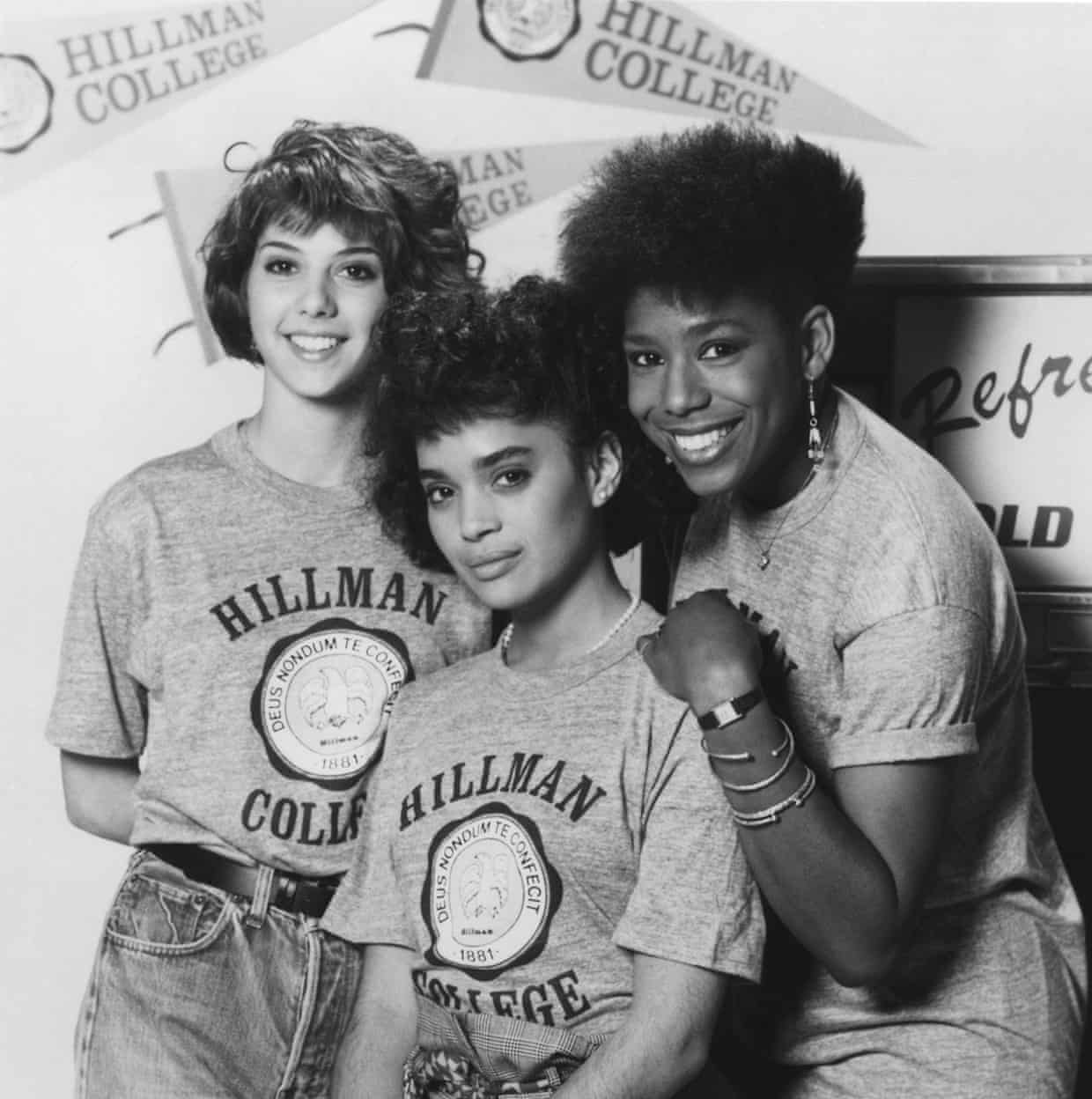
A riff on the university setting of A Different World, the world’s first crowd-sourced HBCU is expanding online
In 1987, the Cosby Show spinoff A Different World made its US TV debut and followed the elder child, Denise Huxtable (Lisa Bonet), as she studied at her parents’ alma mater. The fictional historically Black college (or HBCU), Hillman, would go on to become a byword for Black excellence. “The influence of kids wanting to go to school, period, I think is very powerful,” one of the stars of the series, Jasmine Guy, said while touring HBCU campuses with her former castmates in 2024, 35 years after the sitcom ended. “Because they could see themselves there.”
Hillman College is credited with driving record levels of enrollment at actual HBCUs in the 1980s and 90s, and remains a source of inspiration for Black creatives to this day. The actor-screenwriter Lena Waithe had the fabled campus in mind when she launched her production company, Hillman Grad. “I want to call it something that is close to my heart, and that is the world of A Different World and what that show represented for me and so many other people,” she said.
Four decades later, that fantasy world lives on and finds itself reckoning with the reality of a second Donald Trump administration hellbent on rolling back diversity programs and gutting the Department of Education. On TikTok, the hashtag HillmanTok has become a free online space where Black scholars share their expertise in subjects that the administration is trying to excise from libraries and school curricula. Anyone who scrolls to their content on TikTok and sticks around for the lesson is part of the class. “I’m mindful of the weight of this particular teaching and this particular time,” says Leah Barlow, a liberal studies professor at North Carolina A&T, the country’s largest HBCU. “Honestly, it feels a little ancestral.”
Last fall, Barlow posted an introductory two-minute TikTok video for her African studies class; 250,000 users subscribed to the class channel overnight and within a week it hit 4m views. “I thought it was going to be a trend for a short time, and then we’d move on to the next thing,” says Barlow, who posted the video on the same day Trump retook office and rescinded a federal TikTok ban.
But then a sixth-grade math teacher named Cierra Hinton seized on the enthusiasm and started the hashtag HillmanTok. She encouraged Black educators to post instructional videos under the banner, and was inundated with hashtagged submissions. Like Black Twitter and Black Lives Matter, another digital social justice movement was born – the world’s first crowd-sourced HBCU. In an emotional response video, Hinton took a measure of satisfaction in helping “people come together and build something that is bigger than we ever imagined, something that means so much”.
HillmanTok class subjects run the gamut from US history to mathematics to culinary arts. There are even electives on African American food studies and Stem careers. “I am finally about to post the syllabus,” Carlotta Berry says in the greeting for her Engineering 101 HillmanTok course. “You can learn asynchronously by watching any of my videos.”
The HillmanTok educators aren’t limited to real-world academics like Berry, an electrical and computer engineering professor at Rose-Hulman Institute of Technology in Indiana. Shannan E Johnson, a former creative executive at the Syfy channel, has a course on screenwriting. The music journalist Touré has a course on the prehistory of hip-hop. “This is actually a reprise of the class I did 20 years ago at NYU,” he joked. “We’re overenrolled, as usual.”
Just as A Different World regularly dealt with weighty subjects such as war, homelessness and the Aids epidemic at the risk of losing advertiser support, HillmanTok also offers culturally urgent lessons on resistance and restorative justice. “People have always been trying to limit and marginalize the impact and effect of Black education,” says Jelani Favors, the director of North Carolina A&T’s Center of Excellence for Social Justice. “But it was those teachers opening up their classroom doors, pouring into young idealists and finding ways to unlock their potential to engage in the deconstructing of Jim Crow and white supremacy.”
This is all happening against the backdrop of a Black college enrollment gap in which Black men account for 26% of the student body. All the while Maga donors add insult to injury by trashing the value of HBCU education overall. “Howard was not Harvard,” the billionaire tech investor Peter Thiel said in a dig at the former vice-president Kamala Harris’s scholarship at Howard University, the most prestigious HBCU. “You couldn’t even point this out [when she was running]. This is probably a racist thing to say.”
